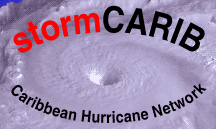2007 Meteor Showers and Viewing Tips
The next meteor shower is the Perseids on
August 12. This year there’s no moonlight to interfere. The best time to
watch is from 11 p.m. August 12 until dawn the next morning. The
best direction to watch is wherever your sky is darkest. If you have a dark
sky, you may see a meteor once a minute on average. The shower is also active
for several days before and after its peak.
Name Date of Peak Moon Phase
Quadrantids January 4 Full Moon
Lyrids April 22 Evening crescent
Eta Aquarids May 6 Morning gibbous
Delta Aquarids July 28 Full Moon
Perseids August 12 New Moon
Orionids October 21 Evening gibbous
Leonids November 18 Evening gibbous
Geminids December 14 Evening crescent
What are meteor showers?
An increase in the number of meteors at a particular time of year is called a
meteor shower.
Comets shed the debris that becomes most meteor showers. As comets orbit the
Sun, they shed an icy, dusty debris stream along the comet's orbit. If Earth
travels through this stream, we will see a meteor shower. Depending on where
Earth and the stream meet, meteors appear to fall from a particular place in
the sky, maybe within the neighborhood of a constellation.
Meteor showers are named by the constellation from which meteors appear to
fall, a spot in the sky astronomers call the radiant. For instance, the radiant
for the Leonid meteor shower is located in the constellation Leo. The Perseid
meteor shower is so named because meteors appear to fall from a point in the
constellation Perseus.
What are shooting stars?
"Shooting stars" and "falling stars" are both names that
people have used for many hundreds of years to describe meteors -- intense
streaks of light across the night sky caused by small bits of interplanetary
rock and debris called meteoroids crashing and burning high in Earth's upper
atmosphere. Traveling at thousands of miles an hour, meteoroids quickly ignite
in searing friction of the atmosphere, 30 to 80 miles above the ground. Almost
all are destroyed in this process; the rare few that survive and hit the ground
are known as meteorites.
When a meteor appears, it seems to "shoot" quickly across the sky,
and its small size and intense brightness might make you think it is a star. If
you're lucky enough to spot a meteorite (a meteor that makes it all the way to
the ground), and see where it hits, it's easy to think you just saw a star
"fall."
How can I best view a meteor shower?
If you live near a brightly lit city, drive away from the glow of city lights
and toward the constellation from which the meteors will appear to radiate.
For example, drive north to view the Leonids. Driving south may lead you to
darker skies, but the glow will dominate the northern horizon, where Leo rises.
Perseid meteors will appear to "rain" into the atmosphere from the
constellation Perseus, which rises in the northeast around 11 p.m. in
mid-August.
After you've escaped the city glow, find a dark, secluded spot where oncoming
car headlights will not periodically ruin your sensitive night vision. Look for
state or city parks or other safe, dark sites.
Once you have settled at your observing spot, lay back or position yourself so
the horizon appears at the edge of your peripheral vision, with the stars and
sky filling your field of view. Meteors will instantly grab your attention as
they streak by.
How do I know the sky is dark enough to see meteors?
If you can see each star of the Little Dipper, your eyes have "dark
adapted," and your chosen site is probably dark enough. Under these
conditions, you will see plenty of meteors.
What should I pack for meteor watching?
Treat meteor watching like you would the 4th of July fireworks. Pack
comfortable chairs, bug spray, food and drinks, blankets, plus a red-filtered
flashlight for reading maps and charts without ruining your night vision.
Binoculars are not necessary. Your eyes will do just fine.
Ann Phelan
Caribbean Wind &
Sun Vacations "creating dream vacations since 1988"
www.bonairecaribbean.com
www.antiguacaribbean.com
Skype: caribchakita
800-219-0118 US Toll Free
011-599-786-3134 Bonaire
Myspace: http://www.myspace.com/caribbeanvacations
Please ask me about travel insurance to protect your
vacation investment. It is officially hurricane season. Buy your insurane
BEFORE the hurricane is named to be covered. Even if you are traveling outside
the hurricane belt to the ABC islands, you cross the islands an flight travel
can be interrupted. Plan your trip carefully purchasing the appropriate
coverage.
When visiting Bonaire, please support the Donkey Park.
http://www.bonairenature.com/donkey/
This message is intended to be confidential and may
be legally privileged. It is intended solely for the addressee. If you are
not the intended recipient, please delete this message from your system and
notify us immediately. Any disclosure, copying, distribution or action taken
or omitted to be taken by an unintended recipient in reliance on this message
is prohibited and may be unlawful
|

